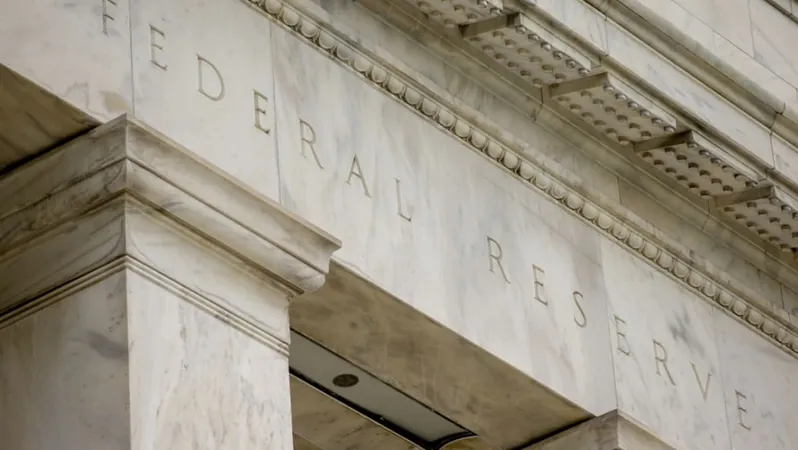
What the Federal Reserve's Big Rate Cut Means for You in Singapore
2024-09-19
Overview
SINGAPORE – In a surprising turn of events, the Federal Reserve has enacted its first interest rate cut in four years, slashing rates by 50 basis points to a range of 4.75% to 5%. While analysts expected a rate reduction, the scale of this cut has raised eyebrows, especially since such aggressive moves are typically reserved for times of economic distress.
Koh Siong Qun, head of investment advisory at Wrise Private Singapore, highlighted the unusualness of such a drastic measure, stating, “Historically, 50-basis-point cuts have been used during emergencies.”
Impact on Singapore's Monetary Policy
So, what does this significant change mean for Singapore? Given that Singapore's monetary policy reacts closely to global interest rates, notably those set by the Fed, we are likely heading into a lower interest rate environment. This shift will ripple through various sectors, influencing everything from savings accounts to loans and investments.
Reasons Behind the Fed's Decision
The Fed decided to cut rates against a backdrop of easing inflation, which saw the consumer price index drop to 2.5% in August—its lowest level since 2021. That said, unemployment rates in the U.S. have also ticked upward, raising concerns that the labor market is beginning to falter. With predictions that unemployment could increase to around 4.4% by the end of this year, it seems the Fed has pivoted its focus from combating inflation to prioritizing job stability.
Effects on Savings and Investments
As a result, Singaporeans can expect fixed deposit rates and government securities returns to further decline. For instance, the yield on six-month Treasury bills now sits at approximately 3.1%, down from a peak of 4.4% in December 2022. Financial experts are forecasting drops of about 0.4 to 0.5 percentage points in returns, which could potentially diminish the allure of saving in banks for many.
Savers who have enjoyed higher rates on their saving accounts may also see changes as banks adjust rates to reflect the recent Fed decision. Expert opinions suggest that by the fourth quarter of the year, significant revisions in interest rates for high-yield savings accounts are on the horizon.
Impact on Mortgages
Mortgage rates in Singapore will also reflect this global shift. Fixed-rate home loans, which are vital for homeowners seeking stability in fluctuating markets, are averaging around 2.6%—a decrease from about 3% earlier this year. But with the reduced appetite for home loans driven by lackluster new property launches, banks are expected to compete fiercely for customers, potentially driving rates down even further.
Opportunities for Investors
For investors interested in the stock market, the lowered interest rates might signify a promising time ahead. The expectation is that a more favorable borrowing environment could benefit sectors like real estate investment trusts (REITs), which often thrive in a low-rate climate. Remarkably, Singapore's banks, which have enjoyed unprecedented profits linked to higher rates, are anticipated to withstand this downturn thanks to robust balance sheets and continued investor interest.
Future Projections
Looking ahead, market analysts speculate that more rate cuts could follow in the coming months, with some projections hinting at reductions into 2026. The trajectory of these cuts will largely depend on the performance of the U.S. labor market and overall economic conditions as the nation gears up for the upcoming elections.
Conclusion
As we navigate through these developments, it’s essential for Singaporeans to stay informed about how these changes can impact personal finances and long-term financial strategies. With potential opportunities in the housing market and stock investments, as well as challenges in savings, it’s a pivotal moment to assess one’s financial health and approach to borrowing or investing.



 Brasil (PT)
Brasil (PT)
 Canada (EN)
Canada (EN)
 Chile (ES)
Chile (ES)
 España (ES)
España (ES)
 France (FR)
France (FR)
 Hong Kong (EN)
Hong Kong (EN)
 Italia (IT)
Italia (IT)
 日本 (JA)
日本 (JA)
 Magyarország (HU)
Magyarország (HU)
 Norge (NO)
Norge (NO)
 Polska (PL)
Polska (PL)
 Schweiz (DE)
Schweiz (DE)
 Singapore (EN)
Singapore (EN)
 Sverige (SV)
Sverige (SV)
 Suomi (FI)
Suomi (FI)
 Türkiye (TR)
Türkiye (TR)